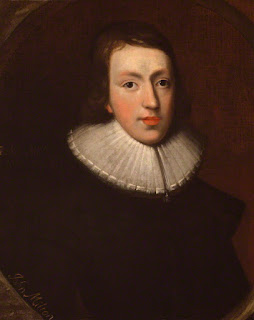John Milton was an English poet,
scholar, and civil servant who lived from 1608 to 1674. He is best known for
his epic poem "Paradise Lost," which is considered one of the
greatest works of English literature. However, Milton's life was filled with
interesting events, and his other works are also worth exploring.
Milton was born in London in 1608,
the son of a prosperous merchant. He was educated at St. Paul's School and then
at Christ's College, Cambridge, where he studied classics and theology. Milton
was an excellent student and showed a particular talent for languages, becoming
fluent in Latin, Greek, Hebrew, French, Italian, and Spanish.
After leaving university, Milton
embarked on a period of intense study and travel. He spent a year in Italy,
where he met influential figures such as Galileo and visited many of the
country's cultural landmarks. He also traveled to France, where he met the
philosopher Rene Descartes.
In 1641, Milton returned to England,
where he became increasingly involved in political and religious issues. He
wrote a number of tracts in support of the Puritan cause, arguing against the
power of the monarchy and the established church. His most famous work from
this period is "Areopagitica," a passionate defense of freedom of the
press.
Milton's political involvement led
him to be appointed Secretary for Foreign Tongues in 1649, a position he held
until the Restoration in 1660. In this role, he was responsible for composing
official letters and dispatches in various languages. Despite his busy
schedule, Milton continued to write poetry throughout this period, including
"Paradise Lost" and its sequel, "Paradise Regained."
"Paradise Lost" was
published in 1667 and tells the story of the fall of Adam and Eve from the
Garden of Eden. The poem is remarkable for its grandeur of style and its
exploration of complex theological and philosophical themes. Despite its
sometimes difficult language, "Paradise Lost" has remained popular
and influential for centuries.
Milton's later years were marked by
personal tragedy. He had married three times, but all of his wives died young.
He also suffered from blindness, which made his writing more difficult.
Nevertheless, he continued to write until his death in 1674. His other major
works include "Samson Agonistes," a tragedy in verse, and "The
Doctrine and Discipline of Divorce," a controversial treatise on marriage
and divorce.
In conclusion, John Milton was a
complex and multifaceted figure, whose life and work continue to fascinate
readers and scholars. His dedication to language and learning, his political
and religious convictions, and his poetic genius all make him one of the most
important figures in English literature.









No comments:
Post a Comment